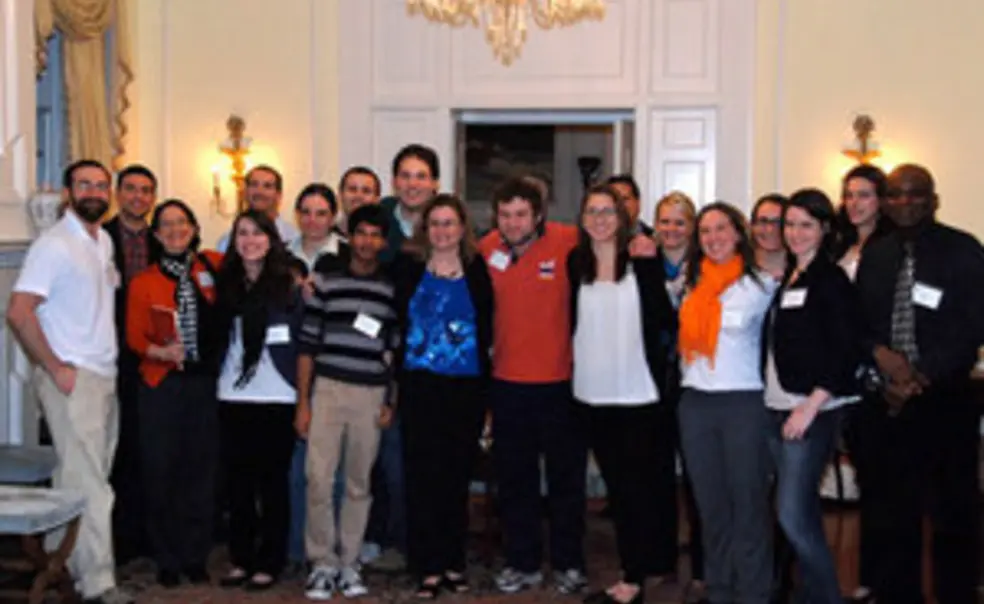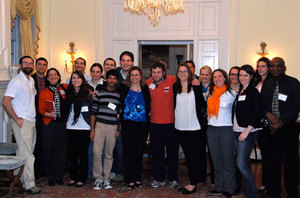Teacher of the Year Shearer '95 meets with Teacher Prep students
Michelle Shearer '95, center, in blue shirt, met with students, alumni, faculty, and staff during her visit to campus this week. (Photo: Gavin Schlissel '13)
Answering a reporter’s questions in the White House Rose Garden last year, Michelle Shearer ’95 spoke of the need to “elevate the teaching profession.” Teachers, she said, are not adequately recognized for their service, and the teaching profession is looked down on as a lesser calling, for smart people who just didn’t have what it take in areas like medicine or business.
Shearer has been rising above those preconceived notions since she first set out to become a teacher. A pre-medical student early in her Princeton career, Shearer volunteered at Trenton’s Marie Katzenbach School for the Deaf and eventually decided that teaching — not medicine — was her life’s passion. Since then her biography has included stops at the Maryland School for the Deaf, where she taught advanced placement chemistry, and at a Maryland public high school, where she taught chemistry in the international baccalaureate program.
Last May, Shearer was honored at the White House as the National Teacher of the Year, and since then, she has traveled throughout the United States and to China and Japan, speaking about how to improve the standard of education around the world. On Feb. 21, she spoke to a group of students, alumni, and faculty from Princeton’s Program in Teacher Preparation on what it meant for her to pursue K-12 teaching at a time when her classmates at Princeton were preparing for law school, medical school, or business.
Read more: A moment with Michelle Shearer ’95, on teaching
PAW, Oct. 5, 2011
“Even at Princeton a lot of people said to me: ‘Why would you want to be a teacher?’ but I just knew I had to,” Shearer explained. Students looked at her decision as some kind of step down from her pre-medical track, but Shearer found support from the University’s Teacher Prep program. Its administrator, she said, “didn’t talk to me like I was crazy.”
Today, students who pursue their teaching credential during their undergraduate studies face a diverse course load that includes aspects of educational psychology and methodology, visits to classrooms in the Princeton area, and student-teaching for 12 weeks either during the semester or after graduation. The course work may turn many away, explained Max Lyons ’13, who studies math in addition to pursuing his teaching credential. “It is a tough workload, but there is still enough time to take other classes,” Lyons said.
Though Shearer described her insatiable desire to become a teacher coming out of Princeton, Lyons is less certain about how he’ll use his teaching credential. “I’m not sure I want to teach right away, but I think I want to eventually,” he said.
Another student in the program, Gary Fox ’13, who discovered Teacher Prep while browsing the course catalog, echoed Lyons: “We leave Princeton with a teaching credential that lasts a lifetime, whether we choose to pursue education immediately after graduation or not.”

Gavin Schlissel ’13 is a molecular biology major from Moraga, Calif.













No responses yet